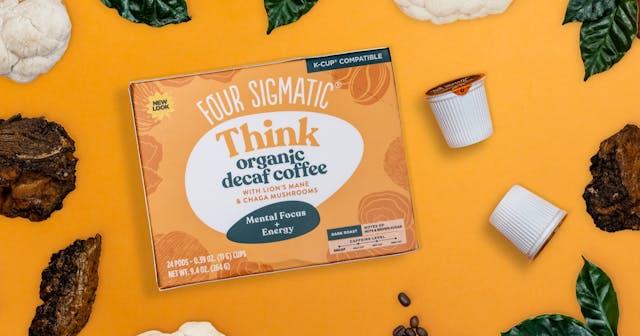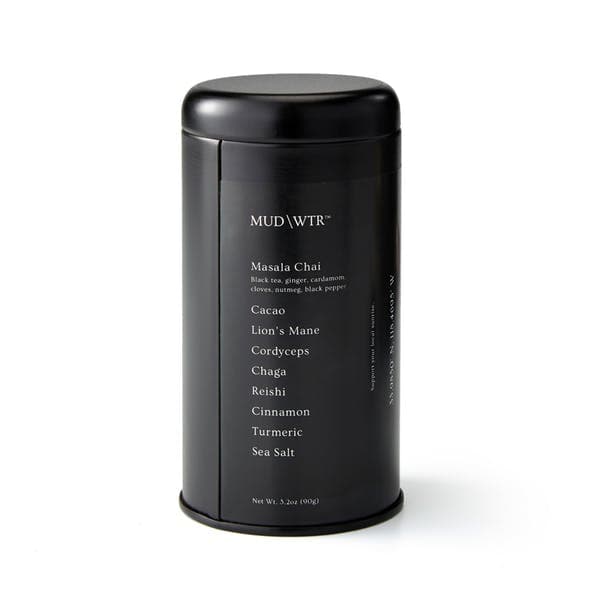Colin Nagy | July 30, 2021
The Caffeine Addiction Edition
On coffee, jagged highs, and breaking the habit
Recommended Products

Elixirs made from powdered mushrooms. The Cordyceps blend is particularly good before a workout, while the Lions Mane blend is good for focus. Reishi helps you go to sleep, and Chaga is a general immunity booster.

A blend of Organic mushroom blend (chaga, reishi, lion’s mane, cordyceps mycelial biomass cultured on organic oats), Organic cacao, Organic Spice Blend (organic cinnamon, organic turmeric, organic ginger, organic cardamom, organic black pepper, organic nutmeg, organic cloves), Organic black tea powder, Himalayan pink salt. It has 1/7th of the caffeine compared to coffee.
Re-upping this, as I read Michael Pollan’s recent writing on caffeine. Quick links have been updated. Have a good weekend -Colin (CJN)
Colin here. I’ve been on the coffee train since I could get my hands on it as a teenager. It’s been a daily ritual. I never made it to A-grade coffee nerd status, but I did start noticing the nuances of different varieties and the work of people like George Howell, one of the most respected roasters in the world.
Over the last few years, though, I’ve seen caffeine become a kind of crutch for me. I was having a coffee pre-gym, one on the way into work, another at work, and then a last cup in the afternoon. The consumption was too high, and it was getting in the way of actually being able to focus, along with generally raising my anxiety levels. On top of that my tolerance was going up, pushing me to drink more coffee with each cup.
I recently read an interesting post on Medium outlining the idea of a caffeine reset, and it inspired me to see if I could bring my coffee intake back under control. The working theory (read: not proven science) is pretty simple:
Once you build up a tolerance, you become dependent on caffeine just to function normally. Effectively, your baseline level of physical and mental performance goes down, and your usual caffeine dose is only enough to get you up to normal. So if you normally consume 100 mg per day, for instance, after a few weeks you’ll be subnormal without caffeine; 100 mg will get you functioning normally, but it will take an even higher dose to truly reap its benefits.
Why is this interesting?
Beyond the explanation, the post outlined an approach to weaning yourself off so much caffeine. First, you take a simple amino acid supplement to block the worst effects of caffeine withdrawal and substitute your normal ritual with the decaffeinated version. While taking the supplement (easy to find at any drugstore), I had one day of what I would describe as a red-wine hangover headache, and sometimes it felt like there was a thin layer of gauze between me and the world, but by day three or four, most of the side effects were gone
I thought the underlying explanation was fascinating:
While caffeine’s primary mechanism of action is inhibition of the depressant neurotransmitter adenosine, the most painful symptoms of caffeine withdrawal aren’t linked to this process. Among other things, caffeine causes the brain to overproduce three stimulant hormones and neurotransmitters: dopamine, epinephrine (adrenaline), and norepinephrine. …
Chronic caffeine usage can therefore deplete the brain’s stores of tyrosine and phenylalanine, two amino acids that act as building blocks for dopamine and adrenaline. This depletion is partly responsible for caffeine tolerance, as well as some of the more painful side effects of caffeine withdrawal—which is why research shows that phenylalanine and tyrosine depletion reduces the effectiveness of stimulants.
It has been about two weeks being caffeine-free and my days are much more balanced and focused. I’ve rekindled my love for tea, and also have been experimenting with some other interesting substitutes. One is Four Sigmatic, which makes elixirs made from powdered mushrooms. The Cordyceps blend is particularly good before a workout, while the Lions Mane blend is good for focus. Reishi helps you go to sleep, and Chaga is a general immunity booster.
I’ve also tried a product with the unappealing name of Mudwtr, which blends a lot of things, namely: “Organic mushroom blend (chaga, reishi, lion’s mane, cordyceps mycelial biomass cultured on organic oats), Organic cacao, Organic Spice Blend (organic cinnamon, organic turmeric, organic ginger, organic cardamom, organic black pepper, organic nutmeg, organic cloves), Organic black tea powder, Himalayan pink salt.” And it has 1/7th of the caffeine. It is a pleasure to drink in the morning, and creates the alertness, with health benefits, but without the cracked-out jitters that became all too familiar. (CJN)
Phone of the Day:
I’m very skeptical of this “dump phone” revolution that people keep talking about (where people claim the big trend is people buying phones that just make phone calls). To that end, this working rotary cellphone by Justine Haupt cracked me up. (NRB)
Quick Links:
What happens to the body after 76 hot dogs (CJN)
New Yorker on Donald Judd. (CJN)
Qaddafi’s son, profiled in the NYT (CJN)
Thanks for reading,
Noah (NRB) & Colin (CJN)
Why is this interesting? is a daily email from Noah Brier & Colin Nagy (and friends!) about interesting things. If you’ve enjoyed this edition, please consider forwarding it to a friend. If you’re reading it for the first time, consider subscribing (it’s free!).

